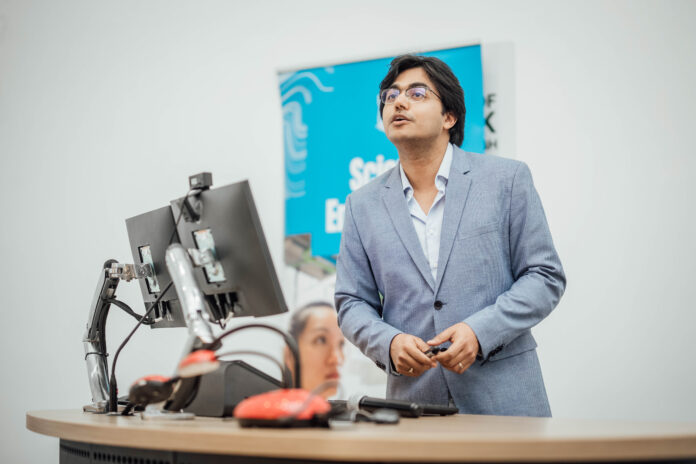
RESEARCHERS at the University of Limerick (UL) have come up with a new material that can eliminate so-called ‘forever chemicals’ from water.
The UL researchers, working with colleagues from the Technical University of Munich (TUM) in Germany, have come up with a way of removing certain harmful chemicals from drinking water.
Per- and Polyfluoroalkyl Substances (PFAS) are a group of man-made chemicals that that have been in use since the 1940s.
Due to their ability to resist heat, oil, stains, grease, and water, PFAS have been widely used across a range of industrial and consumer applications, from non-stick cookware and water-repellent fabrics to firefighting foams and industrial processes.
Their chemical stability, however, also means they persist in the environment and the human body.
Known as ‘forever chemicals’, the substances can accumulate in the body via food and drinking water and can cause serious illnesses.
The researchers from UL and TUM have developed a new method of filtering these substances out of drinking water.
Relying on metal-organic framework compounds, which work much better than the materials commonly used to date, even extremely low concentrations of PFAS in the water can still be captured.
Dr Soumya Mukherjee, an assistant professor of Materials Chemistry at UL’s Department of Chemical Sciences, said that “the filters delivered removal performance even when they were present in extremely low concentrations of a few parts per billion, that is, only a handful of PFAS molecules among billions of water molecules”.
“With fast and record-high removal properties realised for at least two of the legacy PFAS chemicals, this new class of PFAS filters introduces an as-yet-unknown design principle for future adsorbent design,” Dr Mukherjee explained.
According to the researchers, scaling the filtration system up presents additional challenges.
“Scaling this innovation from the laboratory to pilot-scale operations arguably presents additional challenges in process engineering,” Dr Mukherjee said.
“However, it will be some time before this new filter material is adopted on a large scale in waterworks. The newly discovered principle would have to be implemented with sustainably available, inexpensive materials that are safe in every respect. This will require considerable further research and engineering solutions.”


